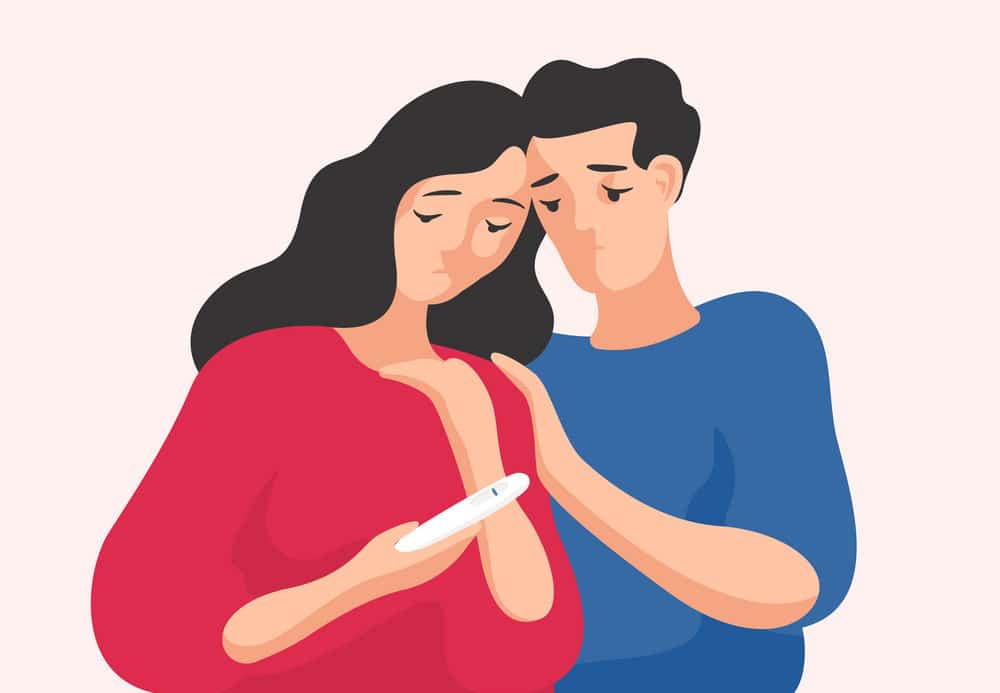Canadian Citizenship Test Essentials - Everything You Need To Know
Becoming a Canadian Citizen
Taking the Canadian citizenship test is not easy, but it’s a requirement for most people who want to become a citizen of the country. While the test itself is only 20 questions long and requires 30 minutes of time, the failure rate of 20% shows just how important it is to study hard so you can get those answers correct the first time around.
What Is the Canadian Citizenship Test?
The Canadian citizenship test is one of the essential requirements for becoming a Canadian citizen. Most people, including adults between the ages of 18 and 54, will be required to take the exam.
The test includes important information on the country and on the legal responsibilities of being a citizen.
While the test itself doesn’t take very long, applying for the exam and preparing to pass it can take months of work.
Requirements
There are a number of eligibility requirements to become a Canadian citizen.
Eligibility
You need to be a permanent resident.
You need to prove your language skills. Canada has two official languages: English and French. You will need to prove you can both speak and listen in these languages. If you have a certificate, diploma, or passed test in these languages, that can help speed the process up.
You need to have lived in Canada for three out of the last five years. The government suggests having been physically in Canada for 1,095 days out of the last five years before applying for citizenship.
You need to pass the Canadian citizenship test.
If you need to file taxes, you must have done so.
Location and Time
You will receive a letter in the mail with information on the location and time for your Canadian citizenship test. If you included an email address on your application, this information will come to you via email. Make sure to regularly check your spam folder to watch for this notification.
Table of Contents
REQUIREMENTS FOR THE TEST
EXCEPTIONS
Who Needs to Take the Canadian Citizenship Test
To become a Canadian citizen, there is both a test and an interview. Some adults are required to do both the test and the interview. The requirements are based on your age and situation.
Adults from the age of 18 to 54 years old are required to take the test and participate in an interview.
Adults 55 years old and older are required to go to the interview but do not need to take the test.
Minors who are under 18 years old and have a Canadian parent, or a parent who is also applying for citizenship at the same time, do not need to take the test. Generally, they don’t need to go to an interview, either. However, sometimes there will be exceptions. Minors may be asked to come in for specific interview questions with their parent in the event of those exceptions.
Minors who are between the ages of 14 to 17 years old who do not have a Canadian parent or a a parent applying with them do not need to take the test but do need to go in for an interview.
Minors 13 and under do not need to take the test or go in for the interview. There will be some exceptions where they need to come in for an interview with their parent.
What Is On the Citizenship Test
There is an official citizenship study guide called “Discover Canada”. Anything covered within this material may be on the test. It includes subjects pertaining to Canada on geography, symbols, history, the laws, government, and economy.
The test may be done in either English or Fresh. It is normally a written test but may be done orally. The questions are two formats, multiple-choice and true or false questions.
The test is only 30 minutes long and includes 20 questions. In order to pass the Canadian citizenship test, you will need to correctly answer 15 of the 20 questions.
How to Prepare for the Canadian Citizenship Test
Everyone prepares to take an important exam like the citizenship test in their own way. That being said, there are definitely tools along the way that can improve your chances of success for the test.
1. Manage Your Mindset
It is easy to become overwhelmed by the prospect of the Canadian citizenship exam. Many people fail the test, there is a lot to study, and there are so many other parts of your citizenship application to take care of. It’s understandable. However, it’s important to approach the exam with some level of confidence and excitement.
Remember that you are choosing to take this test because you are excited about becoming a citizen. Everything you are studying for this exam is an opportunity to learn more about the country you are working so hard to become a citizen of. If you can approach the learning opportunity with some enthusiasm, it will make you more receptive to the knowledge and work along the way.
2. Read the Official Study Guide
The Canadian government provides a free book with all the information you need to take this exam. The book is called Discover Canada: The Rights and Responsibilities of Citizenship. This official book can be found online as an ebook or as an MP3 you can listen to. There are also paper copies you can order.
Make sure to read the Discover Canada guide book thoroughly. It can be helpful to do so more than once. It can also be helpful to highlight while you read or take notes. This helps most people better retain essential information.
3. Take Practice Tests
You’ll want to use a trusted source for your practice test. Many people fail the Canadian citizenship test their first time around. They then need to wait 4 to 8 weeks before they have the chance to try again.
A great practice test for the Canadian citizenship test will be up to date, use a similar format to the real exam, and quiz you on information found in the official guide book. While the practice test won’t ask you the exact same questions as you’ll find on the exam, it will ask similar ones.
By using a practice test, you can become comfortable with the questions. You will also create better recall for yourself. On top of that, by taking a practice test, you will be able to see what areas you need to study further before you take the real test.
4. Practice With a Study Buddy
If you can find someone else also studying to become a citizen, propose that you become accountability buddies. This can mean actively having study sessions together where you quiz one another. It could also be as simple as checking in with each other on a regular basis to discuss where you’re at. Accountability can keep you on track and studying.
5. Take a Course
There are classes, both online and in-person, for people studying for the Canadian citizenship test. Many people find that taking a course gives them a clear path to studying. It also connects them with others on the same path they can ask questions and study with.
Canadian Citizenship Test Day – What Happens?
On the test day, you will both take the citizenship exam and have an interview done where your eligibility will be checked and you’ll receive your test results. On the day, you’ll need to bring all of your important paperwork with you.
What You Need to Bring With You
Before taking the test, you will have received a “Notice to Appear” letter or email that includes information on the date, time, and location for your test. Bring this notice with you. Below, you’ll find information on the other things to bring along, but note that this notice may contain specific requests you may also need to fulfill. Read and follow any instructions in your “Notice to Appear” letter carefully.
Your “Notice to Appear” letter.
If you have a permanent resident card, bring it with you.
You will need to bring two pieces of identification. One piece of identification (ID) must have your photo and signature on it. This could be a driver’s license or a health card. Your other piece of ID may be a foreign ID, but in the case of foreign identification, it needs to have been issued by the government. Canadian IDs do not have to be government-issued.
In the event one of your IDs is not in English or French, you will need to have a translator provide an official translation along with an affidavit.
On your application form, you listed travel documents and passport information. You will need to bring anything listed on the application form with you.
When you signed your application, if you were between the ages of 18 and 54, then you will need to bring a document that proves your language skills. This may be a diploma, degree, or test certificate, or transcript.
Notice to Appear
Taking the Citizenship Test for Canada
The test takes 30 minutes. It is in English or French. It is 20 questions long. The questions are in both multiple-choice and true or false formats. In order to pass the exam, you will need to answer 15 of the 20 questions correctly.
Typically, you can expect to be taking a written test. However, on the day of your test, a citizenship official has the right to decide that you will take an oral test. This may happen if you understand English or French orally but struggle in writing and reading. If it is decided that you will take your Canadian citizenship test orally, this will be done at a hearing.
The hearing for an oral test may happen on the scheduled test day, but there is also a chance that it will be scheduled for a day four to eight weeks after that originally scheduled test day.
If a hearing for an oral test is scheduled, you will get a new notice letter with the date, time, and location. Again, you will need to bring the new notice letter with you when you go to attend the hearing for the oral test.
When You Get the Results
You will get the results from your citizenship test on your test day. After you take your test, you’ll meet with a citizenship official for your next steps.
How Many People Fail the Canadian Citizenship Test
The failure rate for the citizenship test for Canada is unfortunately quite high. In 2010, the country began using a new test. The old citizenship test had a failure rate that averaged 4%. With the new test, the failure rate averages 20% across the country.
This means that, on average, one in five people fail the Canadian citizenship test.
Failure Rate
Take Free Practice Test Now

How many questions: 20
How many correct answers to pass: 15
Passing score: 75%
Duration: 30 Minutes
Type: Multiple Choice
Computer-Based: YES
Preparation Materials:

The Next Steps After the Test
Following your test, you will have an interview with a citizenship official.
During this interview, you will get your test results. The official will also be checking your language skills, verifying your documents, and asking you questions about your application form. The official will also take this time to recheck that you meet all the requirements to officially become a citizen of Canada.
What happens during this interview and after will be different depending on whether you fail or pass the test.
If You Pass the Citizenship Test
If you pass the test, then the official will check all of your other requirements for citizenship during your interview. If all the requirements are met and you passed, then you may get a ceremony date for becoming a citizen during the interview. Alternatively, they may tell you that they will be emailing you or mailing you a letter with your date, time, and location for your ceremony.
Again, if your paperwork includes an email address as a contact, it will be important that you check your junk mail folder for the message with your ceremony date and time.
With the test passed, requirements met, and a ceremony scheduled, you will be on your way to becoming a Canadian citizen. Congratulations.
If You Fail the Citizenship Test
You will find out during the interview after your test if you failed the citizenship test. If you fail this test the right time around, they will still check your other requirements during the interview. If you have met the other requirements for citizenship, the interview official will schedule a second test date for you.
Typically, the second test date will be between four and eight weeks after the original test date. You will have this time to practice and study again so you can pass the second time around.
In the event that you fail your second test, you’ll receive a notice letter with a hearing date with a citizenship official. During that hearing, you may be asked questions about your knowledge of Canada and asked to prove your language skills. This meeting will last somewhere between 30 to 90 minutes and may be in person or via an online video conference call.
If you fail the third test, your application will be turned down. You can still apply again in the future.


